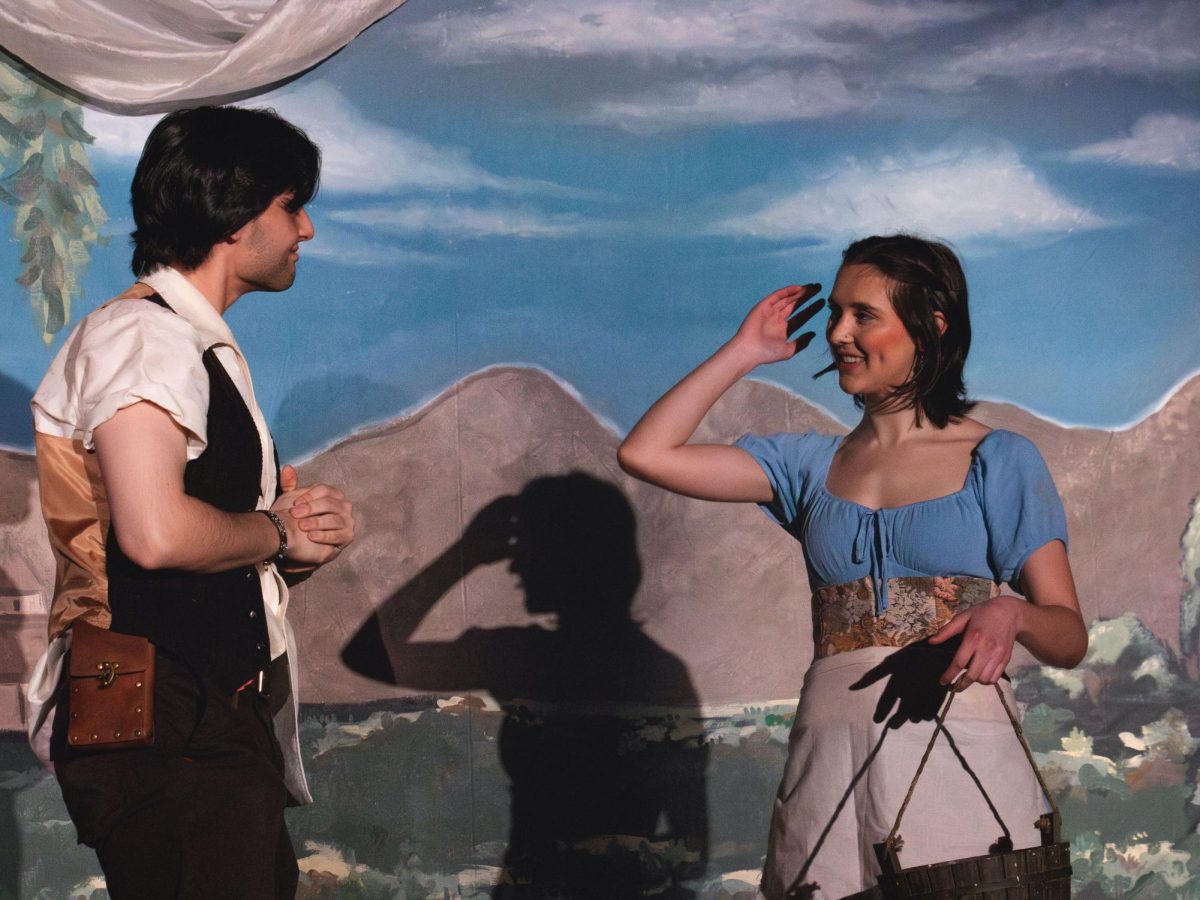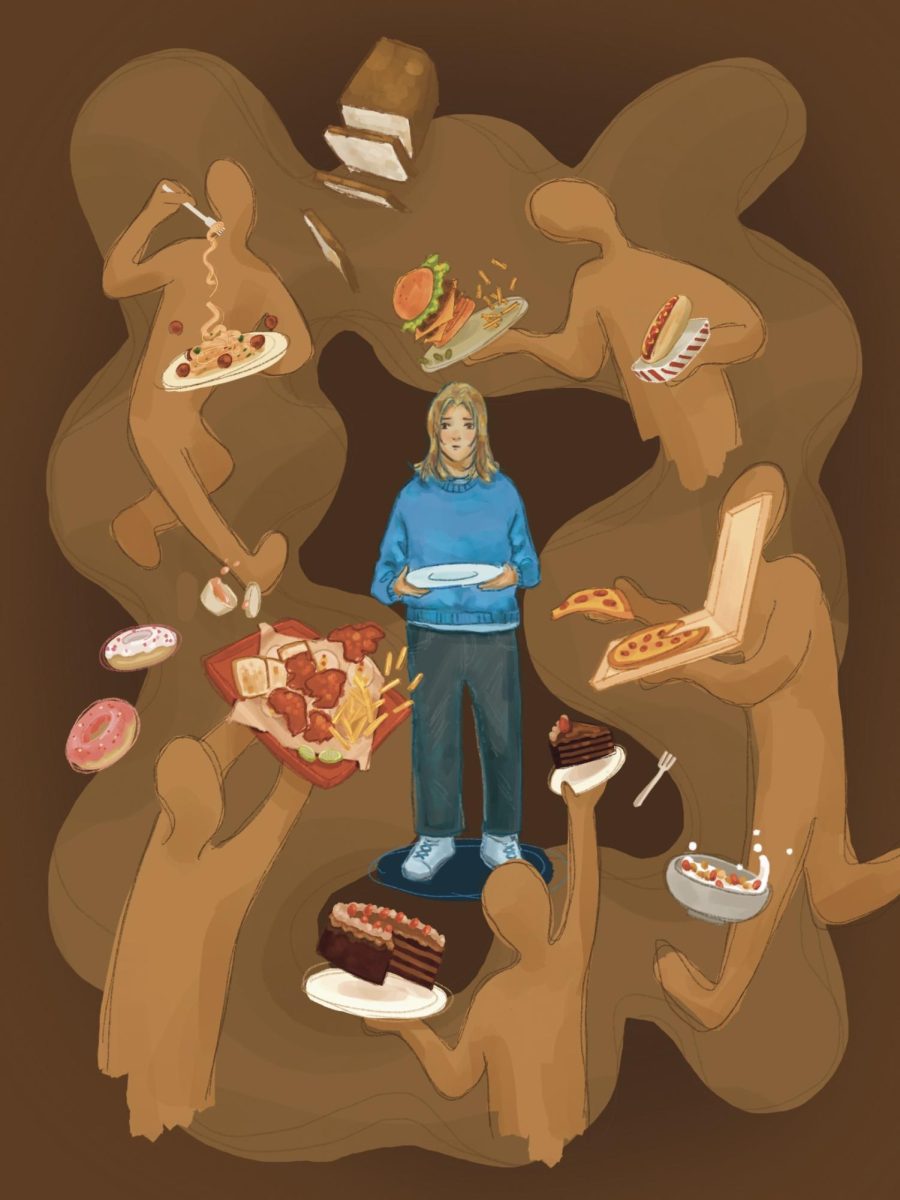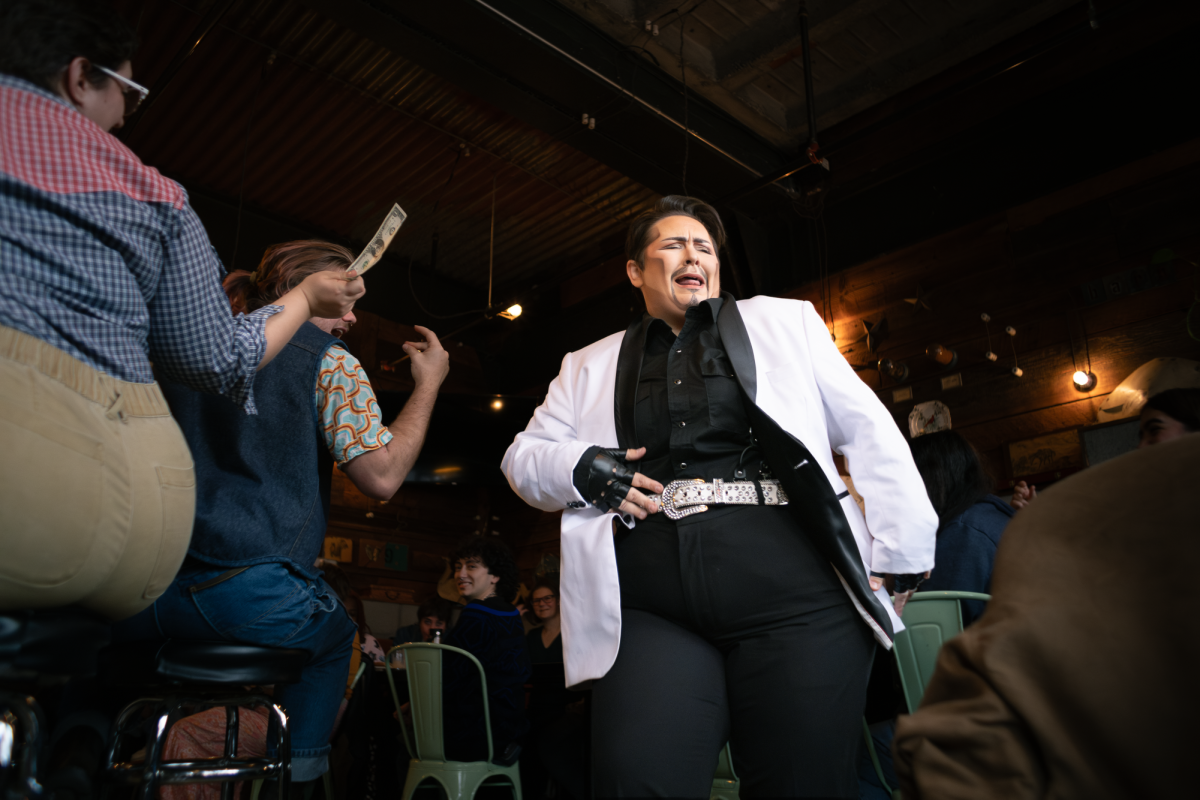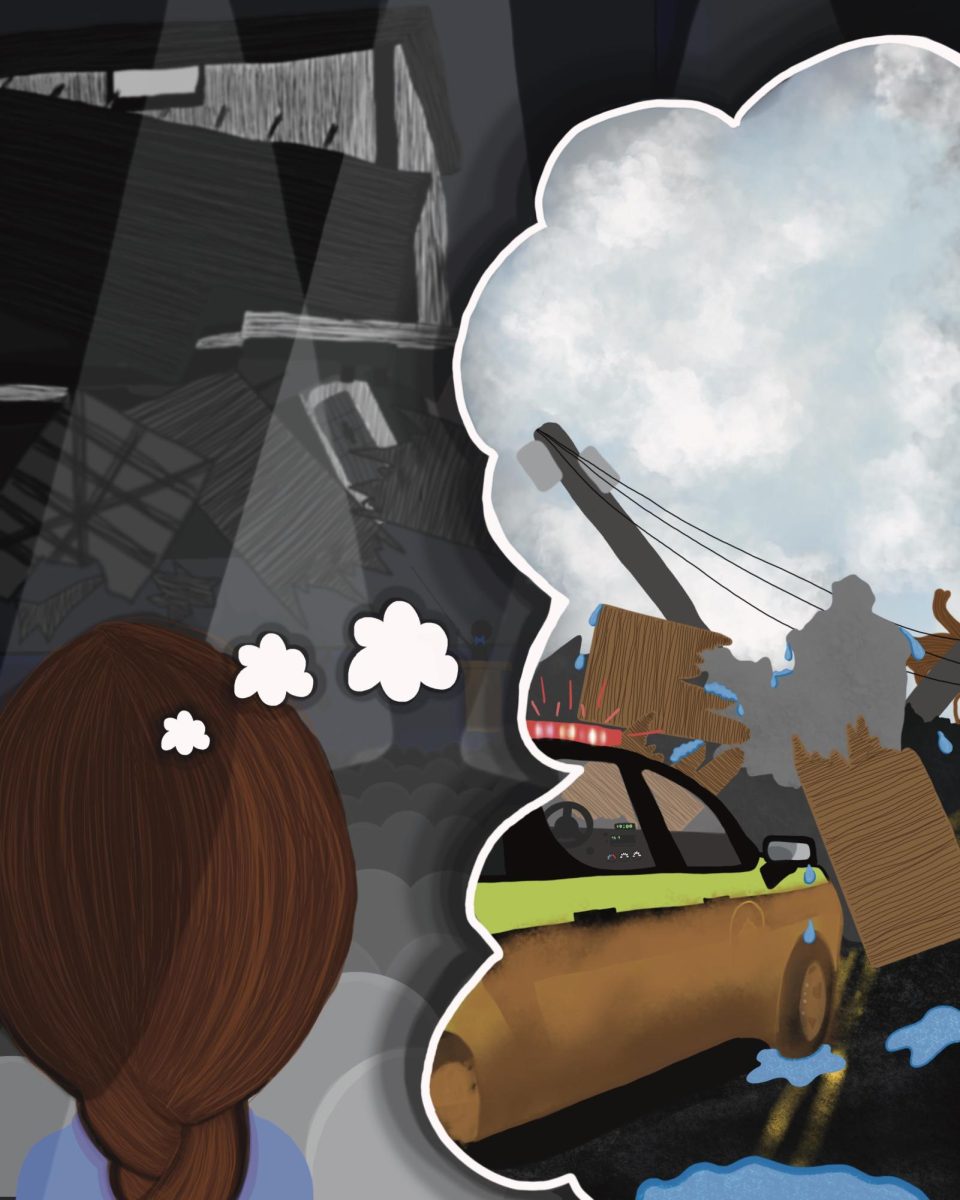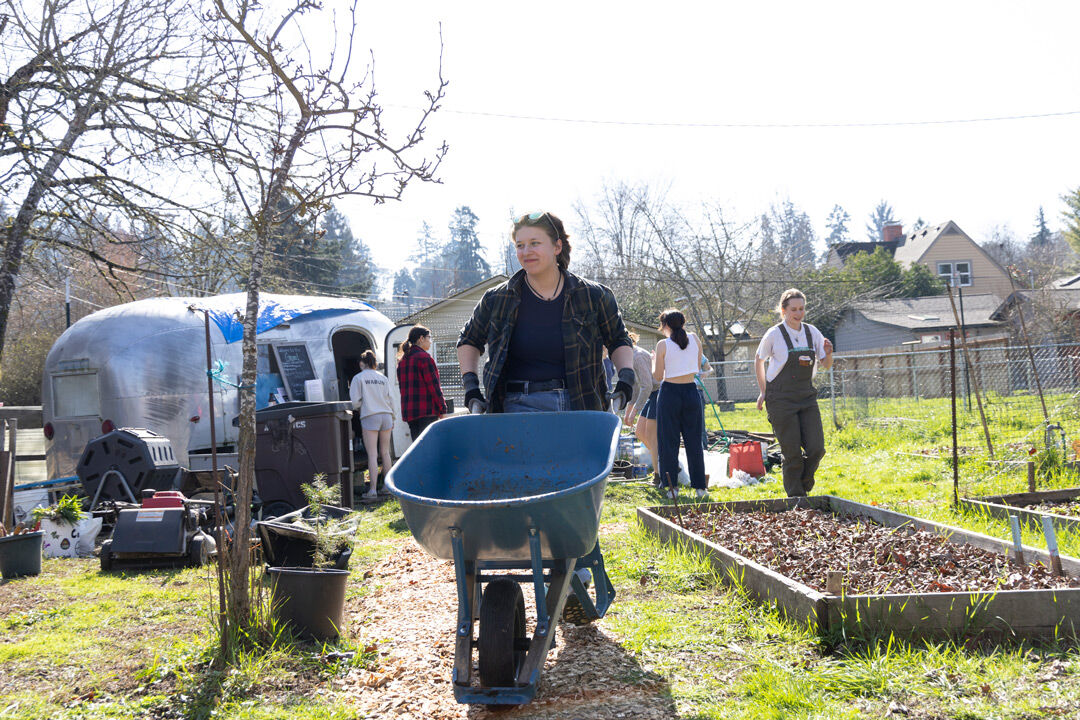As one walks into the Good Medicine Theater in Portland, OR, a positive energy instantly clouds the room. Art, balloons and books clutter previously empty areas, and cheerful custom songs like “Wash it Off” or “The Ice Cream Song” play in the background. Against the wall are two hilariously tall bikes for two of Portland’s most iconic and historic clowns.
With faces covered in colorful makeup and bodies cluttered in colorful bows, ribbons, jewelry, bandanas and other accessories, it’s time for Olive Rootbeer and Dingo Dizmal to host their weekly “Story Time” show for local preschoolers.
“Parents will come up to us sometimes after shows, emotionally saying stuff like, ‘I really needed that,’ or ‘Thank you so much,’” Olive says. “That’s when everything kind of all sits in, and we know we’re doing something good.”
Olive and Dingo are two professional clowns and self-proclaimed “goofballs” in Portland. They’re well known for their years of entertainment, through clowning, arts and crafts, humorous props and infectious personalities, that have left a positive impact on many. They adore being themselves, having fun, and most importantly, delighting anyone that crosses their path.
“We became clowns and community people out of the necessity for the community to have jesters in it,” Olive says. “The jesters are there to hold up a mirror to society, to show them who they really are.”
Olive and Dingo originally met in March 2008 in a Portland park through mutual friends, who all thought that they shared a similar quirkiness and silliness. One day, friends of Olive and Dingo asked them, among others, to come over to help paint a room, but Olive and Dingo were the only two that showed up. They braided each other’s hair and talked for hours. In November 2008, they officially became a couple and are now happily married.
At the time they met, Dingo was in a transition phase as a clown.
For the previous 10 years, he’d been running a clown house on Alberta Street in Portland, but he moved out in 2007. This clown house consisted of Dingo and various other clowns in the area, and it became a staple of the Portland area in the early 2000s. Fans visited the house to see whatever random yet funny gimmick, stunt or performance the clowns would perform and, more often than not, it was a comical success.
The original purpose of the clown house was to entertain, but according to Dingo, when the profits started slowing down, the other clowns started to pocket money secretly. Seeing that they were no longer an asset to the rest of the team and himself, Dingo left.
“The first thing I ever ask a clown who wants to work with me is, ‘Who do you want to be a clown for?’” Dingo says. “If they say anything besides something to do with making the audience happy, I don’t want to work with them.”
Dingo’s clowning days can be traced back to 1987, when he ran away from home to join the circus as a candy man. Spending all his free time with clowns, Dingo knew he’d found his passion.
In 1997, Dingo was a traveling hitchhiker and environmentalist in Eugene. As he attended wetland protests in the area, he met many people with clowning and environmental backgrounds like himself. Come to find out, their makeup resisted tear gas and their clown costumes were very protective from potential brutal force.
“It was perfect to be a clown and activist in Eugene because no one knew what to do with us; it was awesome,” Dingo says. “As we did that enough, we started to do cabaret and burlesque, and we got really good at being clowns.”
When Dingo met Olive in 2008, she had no clowning experience. She was a creative-minded person with a past in acting, singing and art, and was a great performer. Over time, Olive became Dingo’s sidekick during his cabaret shows.
After a few shows, Dingo realized that Olive was a natural clown. Dingo formally invited her to become his official partner, but she needed to commit herself to it full-time. Olive agreed, and from then on, it’s been Olive and Dingo.
“Dingo was a little rusty around the edges at the time,” Olive jokes.
“She revamped my clown outfits to make me more user-friendly to the public,” Dingo adds. “I also certainly didn’t know how to make balloon animals. In many ways, she became a better clown than me.”
The two started to become popular in the Portland area in the early 2010s. Cafes, birthday parties, public shows, barbecues, drinking parties – Olive and Dingo did it all. They even started a Youtube channel highlighting their daily endeavors. As local coverage and media started to spread the word on just who Olive and Dingo were, both became iconic for their fast-paced shows, incredible music and silly vocals and costumes.
In January 2020, small business owner Judi Martin and her husband leased Uplifted Boutique and Makers Market in Portland, OR. The boutique displays all kinds of arts and crafts from local artists with an overarching theme of supporting the community. The space also consisted of a courtyard that connected the Good Medicine Theater to the boutique. Martin and her husband placed a clown costume in the window, and sure enough, it caught Olive’s attention.
“I caught a clown,” Martin says. “It’s what I always say.”
A few weeks later, Dingo walked into the boutique looking for places to do an open mic. Martin brought him to the theater, which is right down the street from where Olive and Dingo live, and Dingo immediately fell in love.
Since then, Olive and Dingo have used Martin’s space to host “Story Time” every Tuesday and an open mic every other Sunday. They’ve missed just a single show, and haven’t shown up late once. Martin trusts them to the point where they carry around their own store key.
“They’re amazing,” Martin says. “Just their integrity, their professionalism. They’re truly professional clowns.”
Before COVID-19 hit, Olive and Dingo hosted “Story Time” at Uplifted Boutique three to five times a week, but now, they host just once a week. This still hasn’t stopped the entire community from recognizing and regarding Olive and Dingo as icons. Martin and her husband once went on a double-date to a local fair with Olive and Dingo, and Martin most prominently remembers all the attention, hugs and photos with fans that came along with it.
But sometimes, this attention also comes with glares and stares.
Riding around Portland in colorful props while wearing clown apparel 24/7 has yielded many comments from strangers referring to Olive and Dingo as “those people.”
Similarly, Olive and Dingo both say that there’s been countless times where the father of a young boy discourages his choice of balloon animal or balloon color because it’s not “masculine” enough. This kind of behavior is the exact opposite of what Dingo and Olive want their message to elicit in people.
“You can tell by how we dress and how we are that we’re radically ourselves and comfortable with ourselves,” Olive says. “We just want kids to feel that same way.”
Olive and Dingo both admit that working together and touching the hearts of many has helped their marriage itself.
“There’d be times that we went into a show, possibly in some kind of fight or dispute, but after we get positive feedback from kids and parents, our love will intensify in a way,” Olive says “That, and therapy helps, too.”
While many know them for their silliness, Olive and Dingo have also attracted fans through the thoughtfulness of their work.
The “Story Time” show has remained just five dollars for guests ever since its inception. Each fan also gets a free balloon animal at the end of the show. While money has admittedly been slow and hard to come by for Olive and Dingo, they say they will never change their pricing ways.
“We do like to make a living, it’s just not super crucial,” Dingo says. “If someone comes up to us and wants to work with us, we might not care about how much money we get, but we do care about advancing the culture of humanity or saving the world in some way.”
Lots of Olive and Dingo’s recognition has also been through their political experiences. The environmental protests for Dingo in 1997 or the World Trade Organization’s protests in Portland in 2000, among other events, shaped Olive and Dingo into both political and humanitarian resources for all.
“We’ll go to protests to lighten the mood, make some balloon animals, help anyone who’s freaking out or just be there to lend a helping hand,” Dingo says. “Whatever happens, the best thing we can do now is be ambassadors for peace.”
“We’re here for the people,” Olive adds. “That’s why we call ourselves the ‘people’s clowns.’”
Olive and Dingo now keep their political agendas out of their work, largely because of the majority of their audience: young children.
“That’s the beautiful thing about them,” Martin says. “They don’t pontificate their beliefs at all, like I don’t get that vibe from them. I think they really want everything to feel welcome regardless of their political or religious affiliation. The guiding light for them is, ‘How do we bring joy to this person at this moment?’”
Thoughtfulness has become a two-way street over time. Hundreds of Olive and Dingo fans and supporters have helped them financially during times of need. Whether it’d be legal fees during a dispute, or money for a new car or bike whenever one has broken down, fans have repaid the favor to Olive and Dingo a few times before.
“You see them riding down the streets in their tall bikes holding hands; they just couldn’t be any more adorable,” Martin says. “They both have the best smiles. I just really love them.”
“They like to make people smile,” says Johnny Carter, a fan of Olive and Dingo. “I see them regularly socializing with strangers around town. They’re always looking to have fun.”
Fun, because that’s what the world needs more of in their eyes.
In 2021, when the pandemic subsided and some sense of normalcy resumed, Olive and Dingo were quick to go back outside in their tall bikes and became a kind of symbol of the community.
“People would see us and occasionally start bawling,” Dingo says. “If we were back out there, then everyone knew some kind of normalcy was back. That’s what it feels like when people depend on you. It’s an overwhelming feeling.”
“We’re like the local firefighters,” Olive adds. “We feel like we’re perpetually here because we need to be. I don’t feel like I ever want to stop, though.”
While the two may never stop clowning, they’re constantly having to evolve their craft. Dingo sells painted pictures of rubber chickens doing random activities as a side hustle. He also hosted a wedding recently, and is planning on working a rave in the future. But whatever happens, for Olive and Dingo, happiness will be at the forefront of everything.
“We are radically, as best as we can, kind to the people around us,” Olive said. “We try to find the joy and uniqueness in every moment. There’s always a different path than what’s handed to you.”


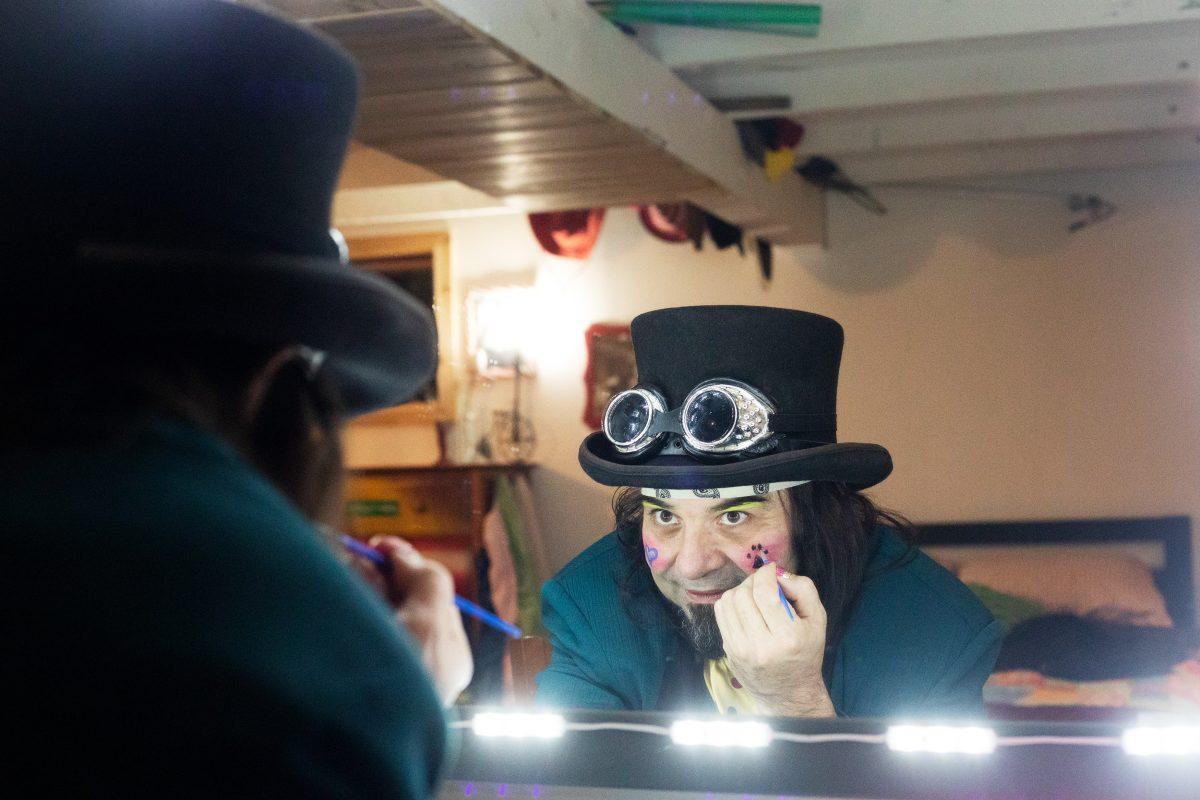
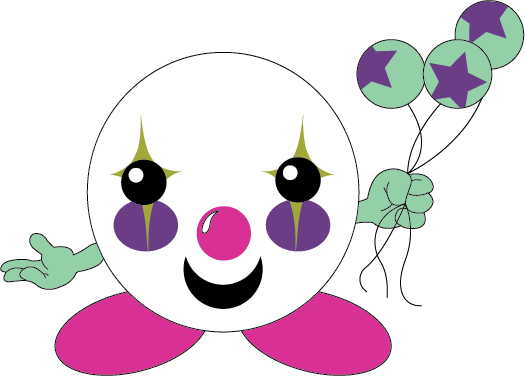
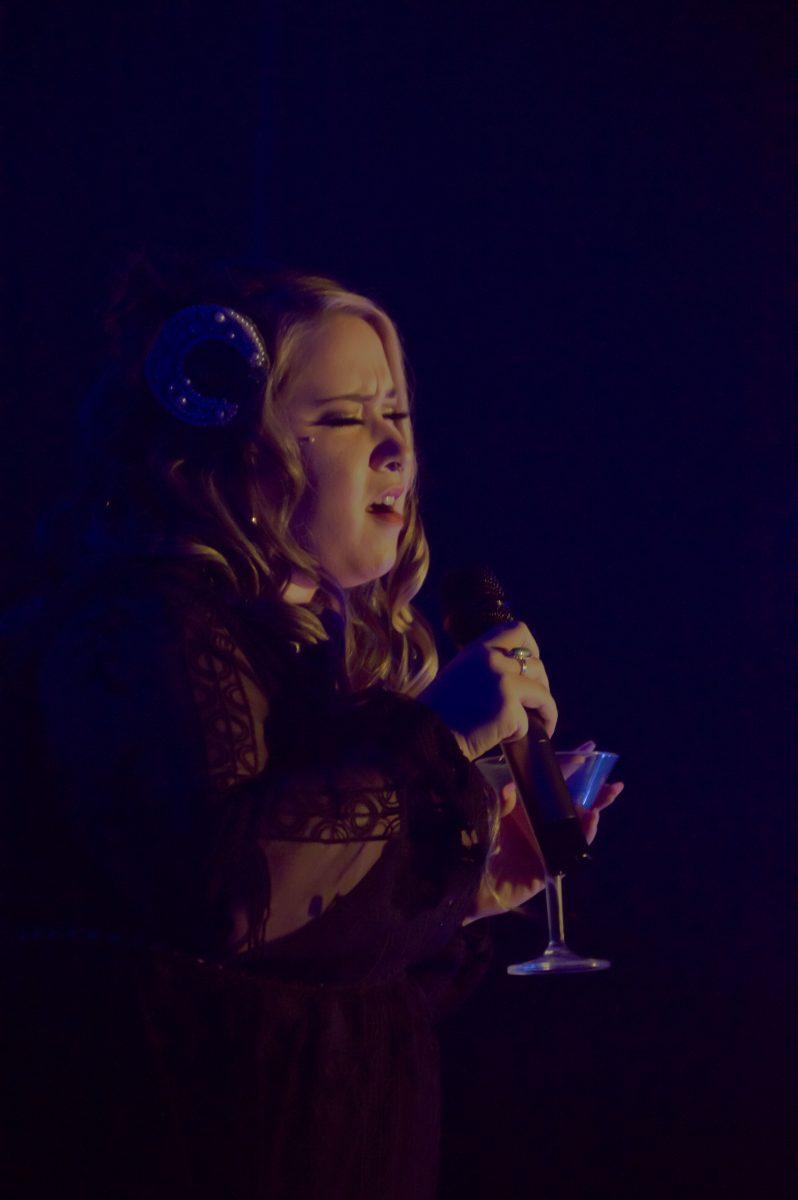
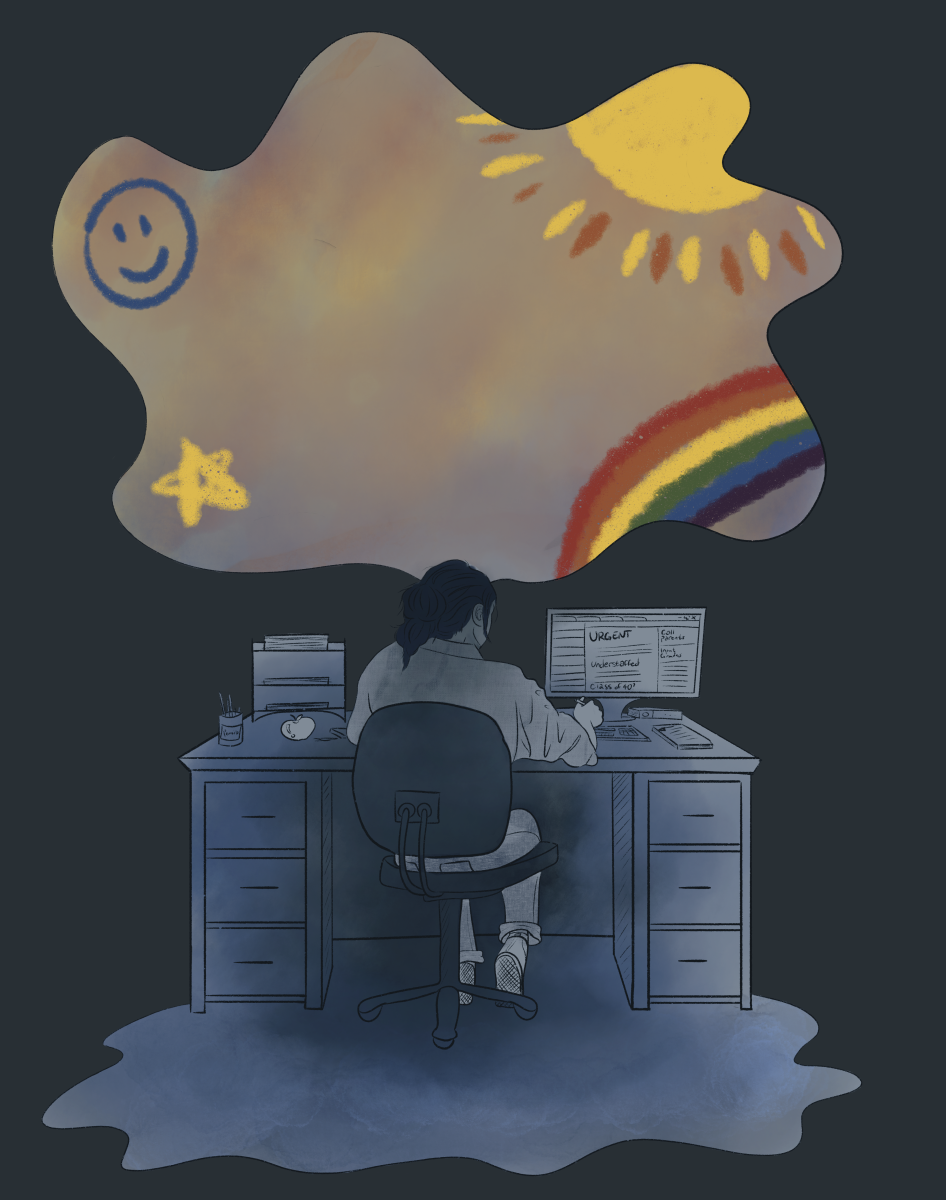



![[Photo Courtesy of the Lara Family]
Ruben embraces his beloved childhood goat, Katrina.](https://ethos.dailyemerald.com/wp-content/uploads/2025/05/katrina-1-1060x1200.jpg)



